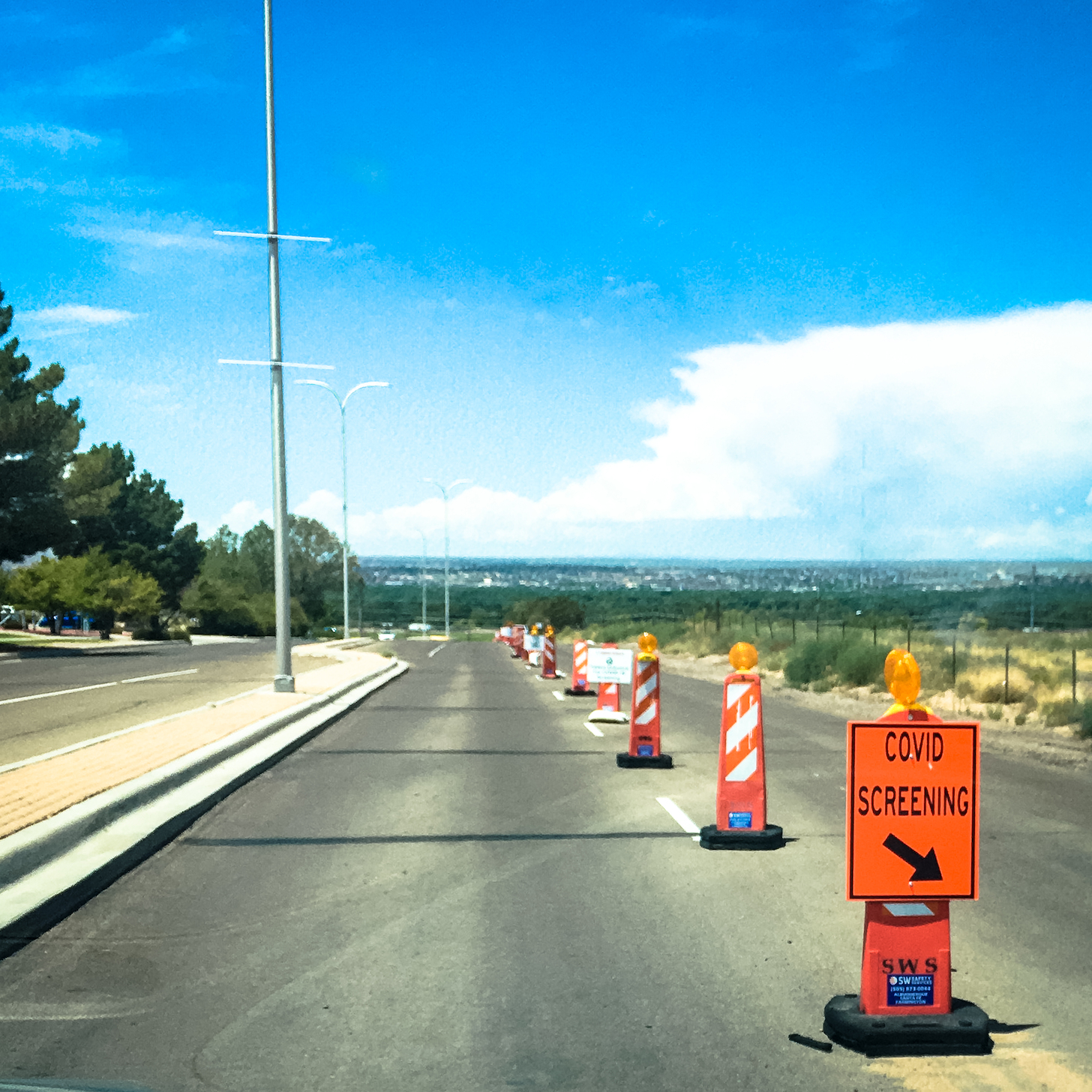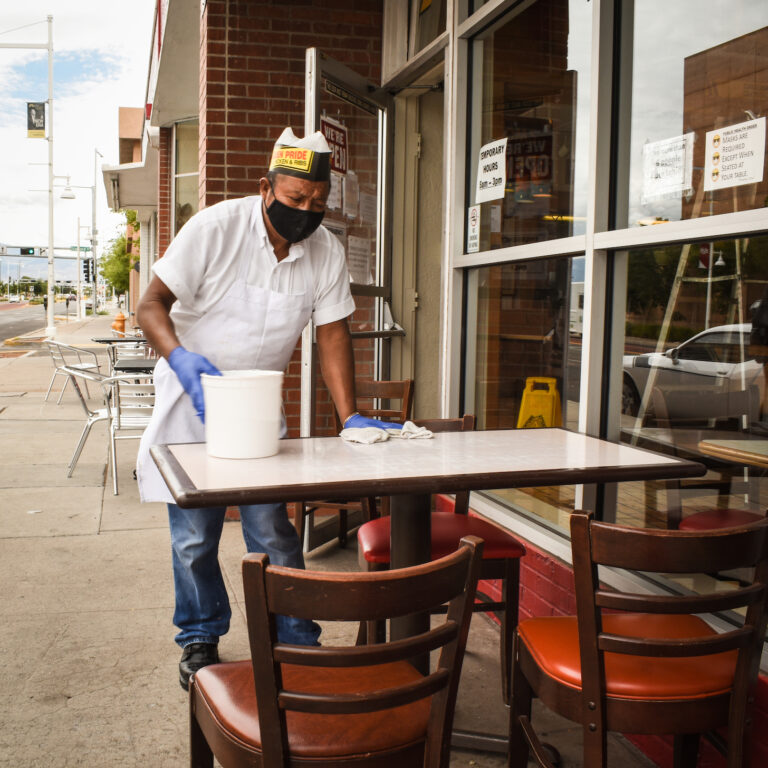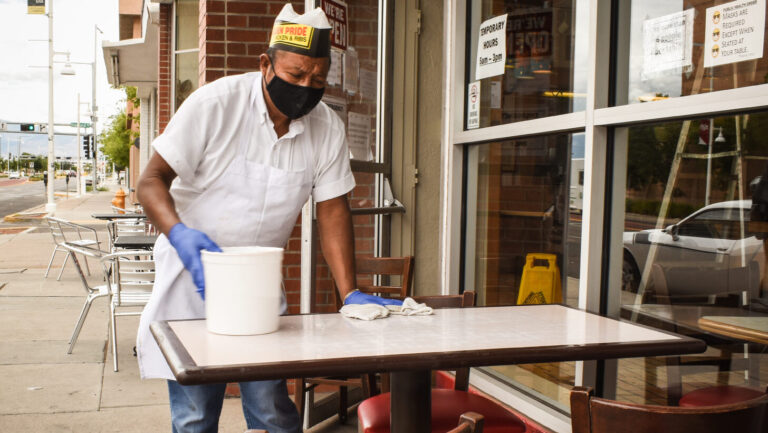Comprehensive Enough?
With a system so comprehensive, where could anything go wrong? This isn’t to say NMED is doing anything wrong per se, but it’s more of a question on the validity of the system as a whole. In the past weeks, we’ve all seen a few favorite restaurants pop up with Facebook posts announcing short-term closures while they handle a COVID-19 case, and we all applaud them for doing the right thing, albeit under threat of more strict enforcement. Yet, with the amount of new cases happening daily, the number feels a little low. So there are two things to know for this next part to make sense. The first is the Health Insurance Portability and Accountability Act, or as anti-maskers have come to know it, the magical acronym you can yell in public to avoid wearing a mask because of medical reasons. (Side note: This is patently not true, and if you don’t believe me, check out next week’s write-up on it.) More commonly referred to as HIPAA, this 1996 medical act was passed to provide more protections to patients. Specifically, it included a little thing about privacy in it, namely that it required the protection and confidential handling of protected health information.For example, let’s look at the double-edged sword of service dogs. The work they can do is pretty amazing, and they give people a chance to live a more functional and happy life without the need for any number of different things that the dog replaces. From mobility assistance to life-saving preventative alerts about oncoming seizures, a service dog has a lot of versatility. Because of that, and the ability for them to be legal without any professional training, service dogs have been a lot more prolific in the public eye in the past decade, so ease of access has gotten better for people using them. The thing is you can’t ask someone why they have a service dog. Or, to be more specific, a business can’t ask, legally. You, as a regular person, can do so, but you’ll look like an ass, so it’s better to avoid it. That’s the power HIPAA grants an individual, along with protections afforded by the Americans with Disabilities Act. Their need for a service dog is between them, the dog and their doctor. Said double-edged caveat is that there was a rise of people who called dogs “service dogs” when they very clearly aren’t, but businesses only have a few things they can legally ask to infer if the dog is legitimately working or a tiny Chihuahua that enjoys pooping in various places publicly.The second important factor for tracing COVID exposure via businesses is which kind of test a person takes. Not in terms of antibody or viral testing, but where. If you go to a Department of Health testing site, those results will be publicly known and reported to your workplace, which triggers the whole system we talked about up top. What if it’s done privately at a hospital? The system shifts quite a bit. For example, let’s say you go to Lovelace and get tested, and it comes back positive. Lovelace is legally not allowed to tell anyone but you or an appointed guardian that your results were positive. When this happens, the case is still logged in the statewide total, but your employer doesn’t know. Now, morally, you can tell your employer about this, but this means you will probably be put on leave, paid or unpaid depending on your workplace. (But let’s admit it, this is America, it’ll be unpaid.) From there it’s in the hands of each individual person to report the illness or not. Even if you tell your employer, they can choose to not tell the state or fellow employees. The scummier people may even refuse to give you leave. As far as word on the street goes, that isn’t happening. (Though if it is, let us know!)This is where the breakdown is occurring. Legally, a private hospital cannot share your results, so it is essentially a game of telephone based on morals. Maybe you’re a restaurant that found out you had an employee test positive right before the last weekend of dine-in eating and chose to stay open to grab that last bit of business. Maybe everything will be OK. Or maybe you have a few asymptomatic carriers working directly with the public. Sure, businesses are taking more precautions to keep people safe, but if they were 100 percent perfect, then it would be publicly mandated and everyone would exist happier. They’re not, and at some point, new infections could crop up from that. With the two-week waiting period to see symptoms, the disease gets some legs to it and it spreads. You see where this is all going, right?Where Compassion and Logic Meet
It’s essentially a giant cluster of problems. Currently, all privately taken tests give businesses an easy excuse out of “we didn’t know,” thereby circumventing the system in place to ensure it stops. It would be a lie to say any of us believe every business owner in this state cares more about public health than they do their own financials, and to some degree, I get it. As a whole, the federal government is giving people the bare minimum to stay afloat, and that distribution of support is uneven, uncertain and being cut back or dropped. From the lowest paid worker to the highest in any workplace, everyone is feeling the same fear of “What’s going to happen tomorrow? Will I still have income?”Additionally, there’s the matter of getting tested. Current feedback from the community shows that it’s still not efficient or easy. Visiting a test location can result in extreme wait times. (Some of the more heinous horror stories I’ve heard are upwards of four hours.) And while the tests are still free regardless of insurance, many are still reporting receiving a bill of $100 plus, which is never fun. With people living paycheck to paycheck already, the incentive for telling on yourself that you’re sick means losing any income you might have and potentially doing the same for all your coworkers.I get that I’ve been talking a lot about financial stress, wealth inequality and the state of the country’s crumbling system that ignores a large swath of citizens who fall below a certain income level, but it’s all very much tied into the larger issues of what is going on. We have to acknowledge at some point this isn’t working, especially when we look at the rest of the world and see the dramatic difference in the handling of coronavirus compared to the United States. Before all of this started, people were still having to make GoFundMe’s for medical expenses, and despite what it may feel like, that still hasn’t changed. Add a global pandemic to the mix, and going to the hospital becomes downright horrifying, as Erin Beck covered a few weeks back right here in the Alibi. For many, they have no idea if COVID-19 treatment in a hospital is free (currently, the federal government and most health insurance providers say they are covering/waiving the cost of treatment) or how long they’ll be in there. In some states (thankfully, not ours) hospitals are reaching capacity, which means even if you needed treatment, you might not be eligible for a proper care system.The point is I sympathize with the fear of reporting your case if you tested privately for COVID-19. Earnestly, I get that the fallout of it could be potentially bad, and to look out for yourself first is human nature. But I reach out to you, in full sincerity, to ask you for empathy and humanity. Not reporting means you could be putting your coworkers and their families at risk. You could be putting any customer who comes through the doors of your workplace at risk. The path to victory over all this is through unity. Knowing who has caught it and who hasn’t is the ultimate goal here, if we can definitively test every person. In order to do that, we have systems in place to help stop accidental cases. Contact tracing has proven a great way to notify someone when they were at risk. Shutting down and testing everyone from an infected location is another solution that has helped keep people safe. But all of this only works if we’re open and honest with each other.If I may let me reframe it another way. In every single zombie movie ever made, there is always that one guy. You know who I’m talking about. The headstrong, self-righteous thinks-they’re-the-hero-but-is-really-the-group-asshole survivor who gets bit and tells no one. They think they’re stronger than the virus, or that they’ll get to live a little longer if they don’t tell anyone. In earnest when has that person ever been viewed by the audience in a good light? It’s always met with groans, head slaps and frustration, usually resulting in the needless death of a much more loved survivor, followed by their own. Narratively, it’s exciting and makes for great cinema. But when it comes to real life, it’s just kind of a dick move.No one can make you self report if you don’t use the public test sites. But consider the long-term ramifications. We’re what feels like an impossible number of months into this pandemic, and most signs point to this being the first wave, which is typically the smallest of the dreaded normal three. I don’t want this to keep going on. You don’t want this to keep going on. Let’s just do it right so we can go back to hugging each other and going to concerts. I miss live music rumbling through my chest. I miss drinks in a bar with friends. I miss hugging my family. Can we all just agree to be honest and decent people? It’s the least we could all do for each other.Got a tip or story you want us to follow up on? Know of a business endangering employees or customers? Check out the COVID-19 section of our site to submit information to our tip line! Your name won’t be used in print for anything we uncover.






